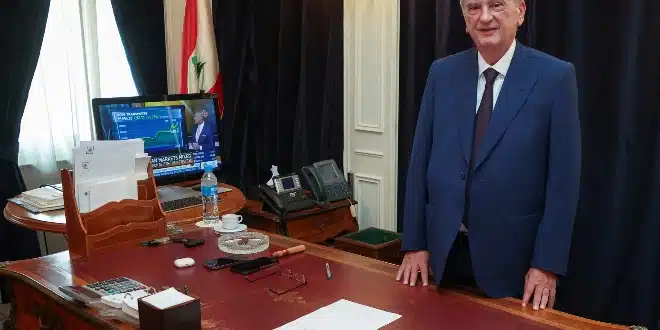Lebanon’s judiciary has approved the release of former central bank governor Riad Salameh on bail set at more than $20 million, judicial sources confirmed Tuesday. The 75-year-old, who has been held for nearly a year on charges of embezzlement and financial misconduct, is now barred from traveling for one year as part of the court’s decision.
A Controversial Figure at the Center of Lebanon’s Economic Collapse
Salameh, who ran Lebanon’s central bank for three decades, is accused of a wide array of financial crimes, including embezzlement, money laundering, tax evasion, illicit enrichment, and forgery. Investigations against him are ongoing both in Lebanon and across several European jurisdictions.
He has long been considered by critics as one of the architects of Lebanon’s economic meltdown—a crisis the World Bank has labeled among the worst globally in modern times. Still, Salameh has consistently defended his record, insisting that he has been made a “scapegoat” for the country’s financial collapse. He maintains his wealth stems from private investments and earlier work with Merrill Lynch rather than from misuse of public funds.
Details of the Bail Decision
Judicial officials, speaking anonymously as they were not authorized to address the media, said the bail package includes $20 million in cash and an additional five billion Lebanese pounds (around $56,000). The release order is tied specifically to a case accusing Salameh of embezzling $44 million from the central bank.
One judicial official emphasized the significance of the decision, describing the bail amount as “the highest in the history of the Lebanese judiciary.” The court had previously rejected bail in April, when Salameh was formally indicted on charges of embezzlement and illicit enrichment.
His lawyer, Mark Habka, criticized the ruling, calling the bail “high and illegal,” and indicated discussions with his client would determine their next steps.
Health Concerns and Imminent Release
A second judicial official said the decision factored in Salameh’s health condition, noting that his pre-trial detention order was set to expire on September 4, which would have required his release regardless.
Salameh stepped down from office in July 2023, closing a tenure marked by early praise for stabilizing Lebanon’s financial system but ending in deep controversy as the country’s economy spiraled into crisis.
What This Means for Lebanon
Salameh’s release highlights the deep divisions in Lebanon’s political and financial landscape. While some see him as a symbol of entrenched corruption, others argue that the country’s crisis stems from broader structural and political failings. His ongoing trials at home and abroad will be closely watched, not only for accountability but also for what they reveal about Lebanon’s ability—or inability—to reform its battered institutions.


